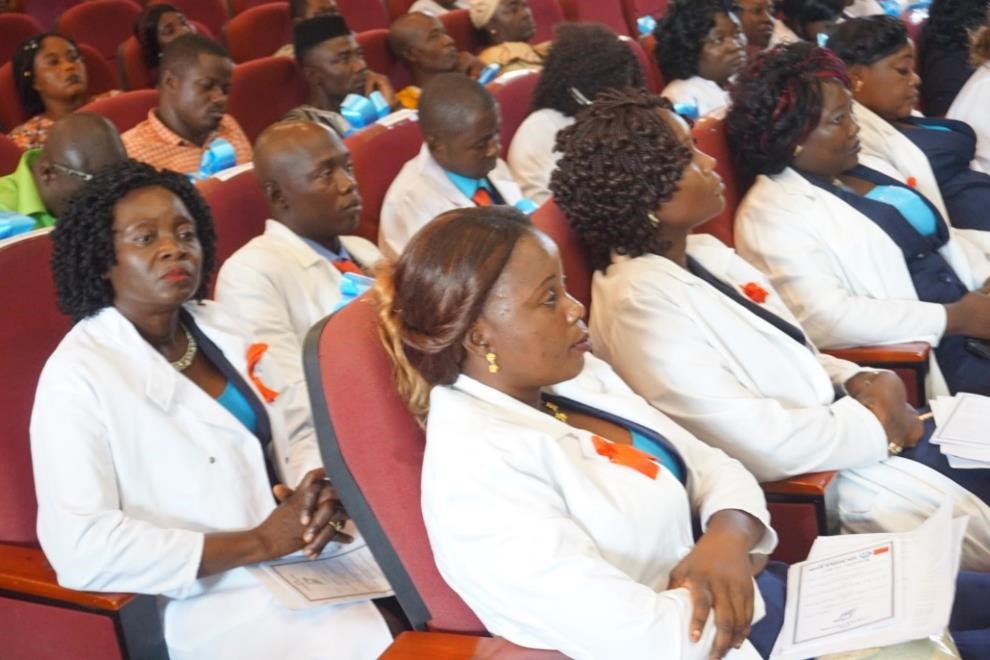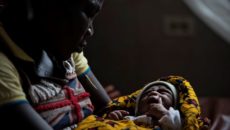MONROVIA, Montserrado – World Mental Health Day was celebrated around the world on Oct. 10, a day when Liberia held its elections.
A few days before that, Liberia’s chief medical officer, Dr. Francis Kateh, celebrated the graduation of 22 specialized child and adolescent mental health clinicians at the Monrovia City Hall.
During his speech, Kateh emphasized that the role of mental health clinicians for children and adolescents in society is cardinal, especially given that many teenage girls become breadwinners prematurely and assume significant responsibilities for their family. He said this is due to the destruction of the family structure during the decades-long civil crisis.
Kateh noted, as a result, many females were self-raised and became parents without being imbued with parental skills.
“The combination has left most of the entire country vulnerable due to trauma experienced coupled with the ability to be duly counseled,†he said.
“The aftermath of children bearing children and its complication with trauma, coupled with the Ebola outbreak, have placed the burden of mental health at the apex in tackling the health care delivery system in the country.â€
Kateh praised the “sense of relief†that mental health clinicians’ presence in within the healthcare delivery system of Liberia has brought to frustrated families.
Providing a situational analysis in the National Mental Health Policy, the chief medical officer said for the 166 trained mental health clinicians, only seven percent of facilities actually have trained mental health clinicians working full time.
Kateh mentioned that since 2011, the ministry’s Mental Health Unit has been trying tirelessly to ensure that mental health clinicians receive salaries commensurate with the hard and challenging work they do. He assured that the ministry remains committed to fulfilling its promise of adequate remuneration for healthcare workers based on qualifications, skills, and years of experience.
Janice L. Cooper, who heads the Carter Center Mental Health Program in Liberia, read a special statement on behalf of Rosalynn Carter.
She said the country is working toward important and meaningful advances in critical mental health and substance use services.
“Your training enables you to make a huge positive impact on the lives of children and adolescents, and you will have the opportunity to improve the social, educational, emotional, and psychological well-being of the country,†Cooper told the graduates.
For his part, Hilton Korvah, president of the graduating class, advised his colleagues to treat every patient equal regardless of their condition.
Korvah called on the government for more support, including the renovation of the dilapidated Catherine Mills Rehabilitation Center.
“The availability of essential mental health should be addressed by the government to avoid the issue of relapse in mental health patients,†he said.
This graduating class means that 230 professionals have now been trained through the collaboration between the Carter Center Mental Health Program and the Liberian government.
Of the 230 clinicians, 64 are specializing in the needs of children and adolescents. Clinicians now work in primary care facilities, hospitals, and other settings which children frequent including daycare and schools across the 15 counties.
This group of Liberian nurses, physician assistants, and registered midwives completed a free, six-month training at the Tubman National Institute of Medical Arts, located in the compound of the John F. Kennedy Medical Center.
The child and adolescent post-basic mental health training program is part of a three-year initiative to address the psychological effects of Liberia’s Ebola crisis and to promote psychological health in the country.
The project is funded through the Japanese Social Development Fund, a trust fund administered by the World Bank.
Featured photo by Zeze Ballah






